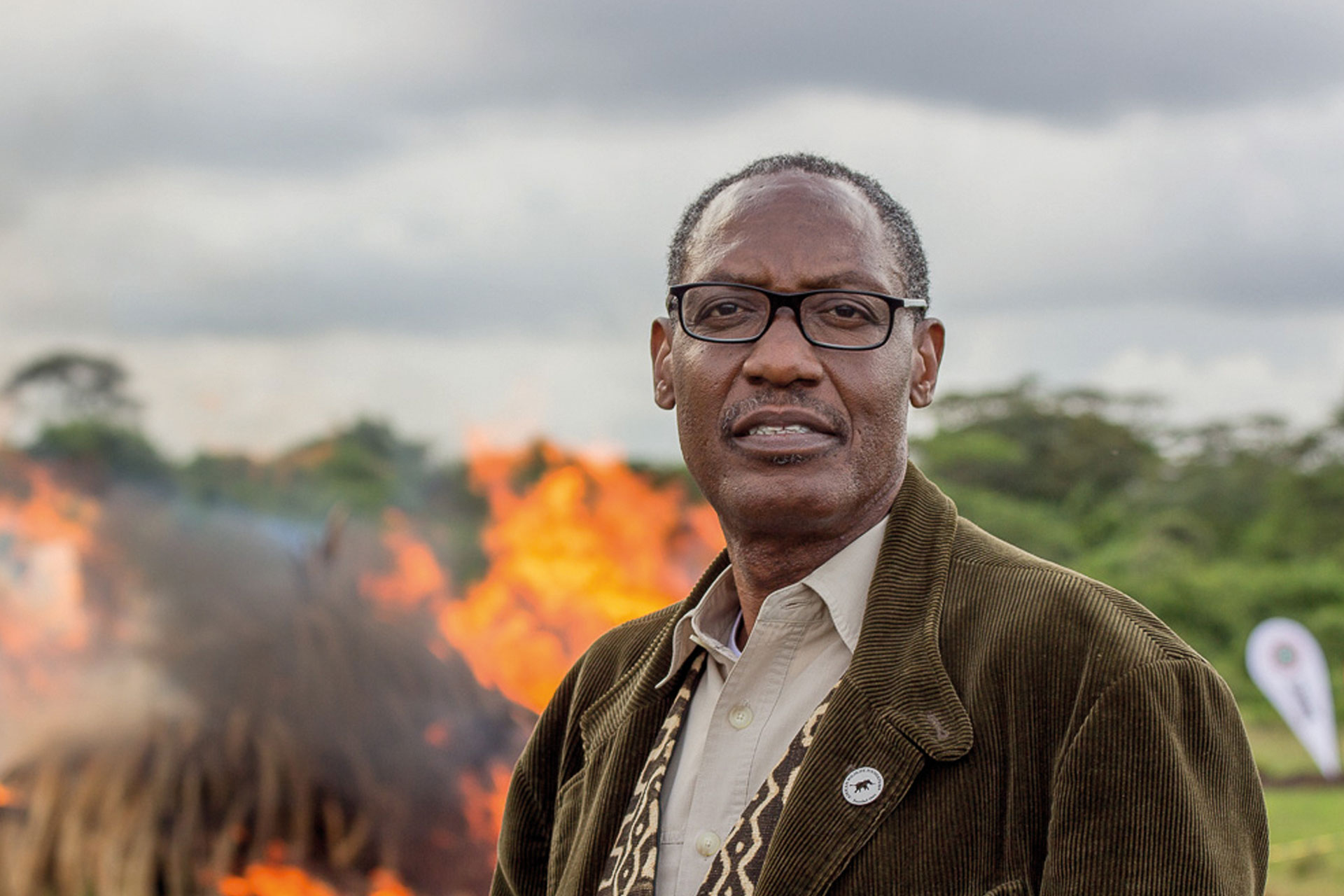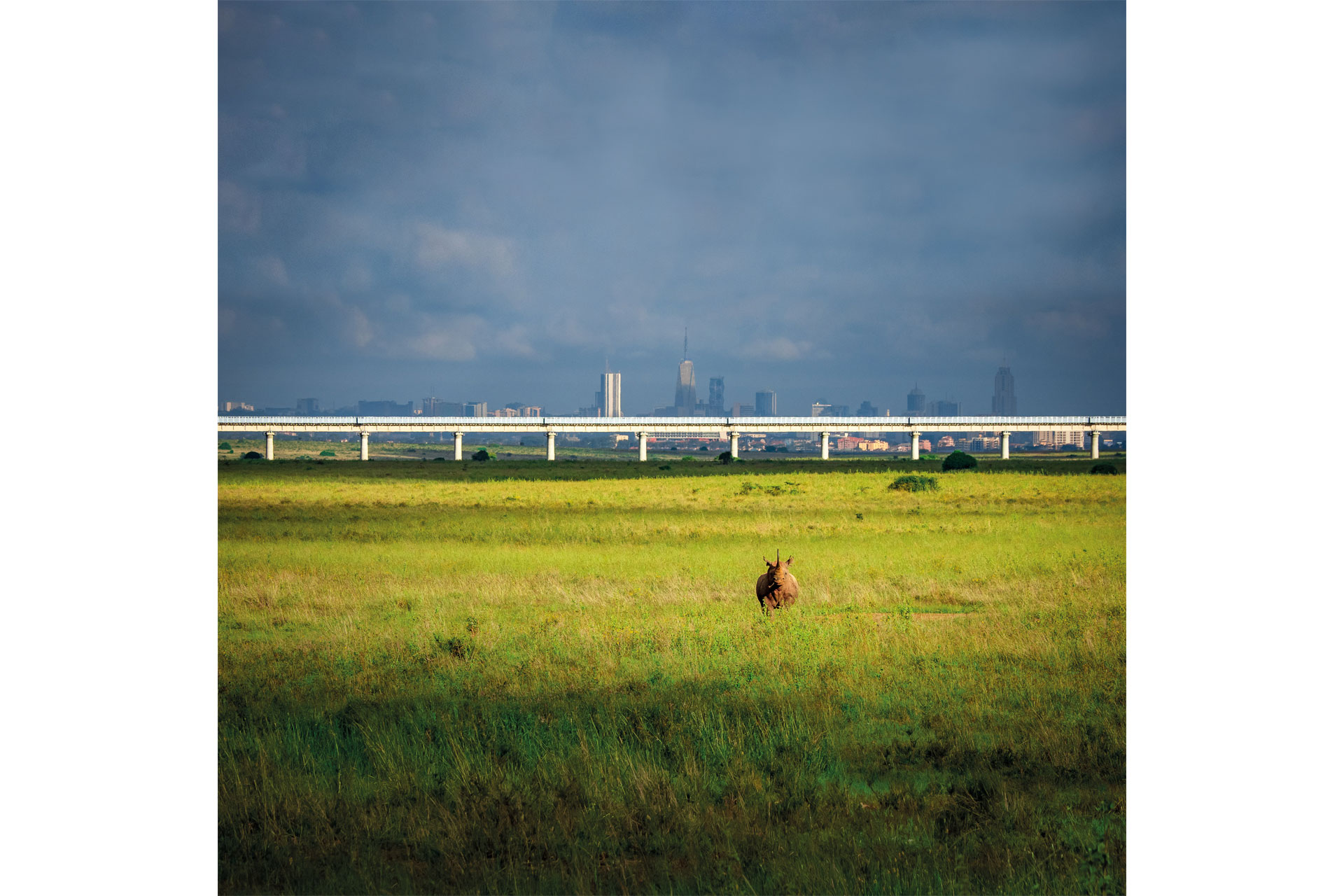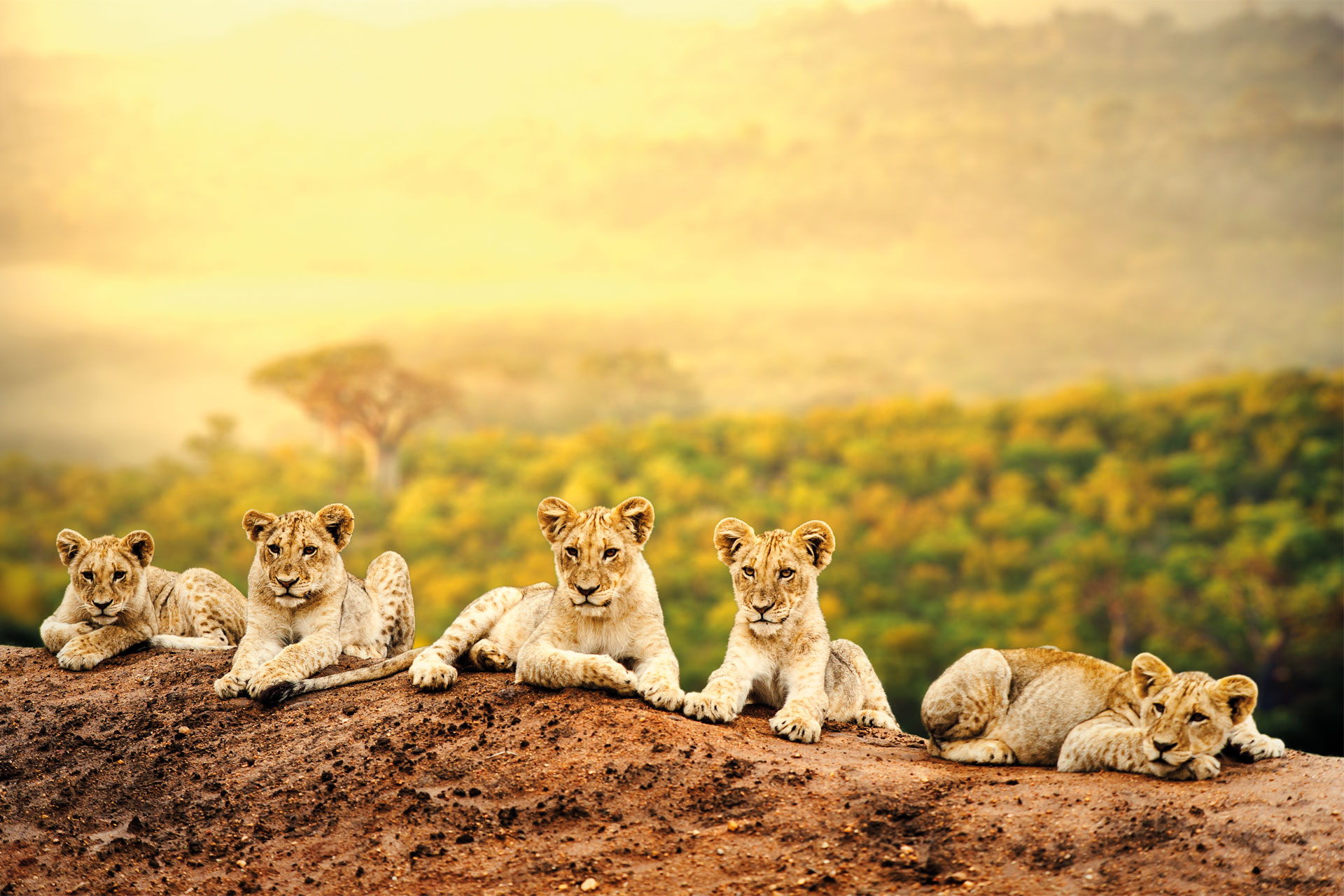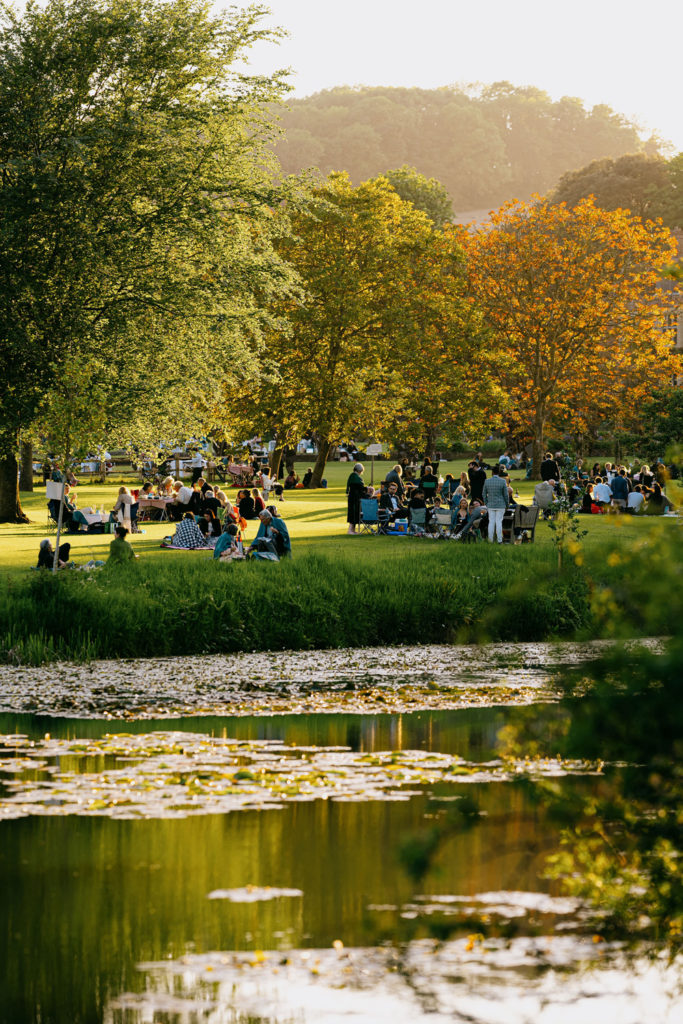Africa and Climate Change: Africa’s Existential Choice
By
3 years ago
Kaddu Sebunya, CEO of the African Wildlife Foundation, says Africa holds the key to combating global environmental threats

Africa holds the key to combating global environmental threats and climate change – but it all depends on which road the continent decides to take. This choice, though, must be Africans’ alone, says Kaddu Sebunya, CEO of Africa’s largest NGO, African Wildlife Foundation.

Kaddu Sebunya, CEO of the African Wildlife Foundation, speaks to C&TH on the topic of Africa and climate change
I’m writing this the week before the Commonwealth countries convene in Kigali, Rwanda for the organisation’s Heads of State meeting. The leaders will reaffirm their common values and policies to improve the lives of their people. The big question is where the ‘wealth’ in the Commonwealth countries is? The common ‘wealth’ is in nature.
The world is only beginning to pick up the shattered pieces from a terrible pandemic that has killed millions, driven millions more into poverty and brought world economies to their knees. In tandem with the Covid-19 pandemic are three fundamental issues that should be tugging on everyone’s minds and are increasing global and continental threats: biodiversity loss; land degradation; climate change.
Africa holds a wild card in addressing those three issues. A third of the world’s biodiversity is found in Africa. Securing nature in Africa results in global benefits to humanity. These services are possible in part because ecosystems have been maintained and secured in Africa. Africa’s contribution to the global public good needs to be recognised and somehow compensated. Therefore, any efforts towards global green recovery must prioritise support to Africa’s natural infrastructure base.
Visit the C&TH conservation hub

As we all know, current development models premised on growth for its own sake are unsustainable. We know that our collective consumption and production patterns are impacting biodiversity and our ecosystems that provide much needed services and benefits to all. As a developing continent, Africa still has a chance to do things right.
But Africa is at a crossroads. It has the fastest urbanising region in the world at a rate of 4.1 per cent compared to a global average of two, with 472 million people living in urban areas in 2018. The growth is unprecedented in speed and scale, and it is projected that by 2040, 51.5 per cent of all Africans will be living in urban areas, up from 40 per cent in 2019. It is further estimated that in 2025, 100 African cities will have a population of over one million. Kinshasa, in Congo, is currently the largest French speaking city, beating Paris.
Evidently, Africa’s population is growing – it is predicted there will be 2.5 billion people living on the continent by 2050, and four out of 10 young people on the planet will be African. The need, therefore, for additional infrastructure, as well as more land for agriculture and human settlement is real.
Africa is now making real choices about how and where development will occur. What areas of Africa should be protected, and which ones will be traded off for development? What is the role of wildlife and wildlands in Africa’s development?
Once the rest of the world begins understanding that Africans have a right to a better economy, better transport and electricity infrastructure and more housing, the question of what model of development Africa chooses will not only determine space left for wildlife but how the planet will be impacted by climate.
We know that the future of the unique continental wildlife is directly tied to these decisions. The future of African wildlife and lands depends on how Africans will link the conservation agenda to aspirations and mindsets driving change on the continent.
The question is whether Africa follows the western model or embarks on a novel trajectory – this will have a disproportionately large impact on the global future. Africa is currently placing economic development and environmental conservation as an either/or option – it is a false choice.
If wildlife and wildlands are to thrive, then we must work hard for them to be interwoven into the positive narrative of growth on the continent. This necessitates a capable and informed cadre of Africans at all levels of society to understand, innovate, lead, make decisions, or exert influence on the future direction of conservation and development on this rapidly changing continent. To line up the development goal blueprints and marshal the various interests they represent in a way that ensures wildlife, like lions or elephants, have a future in modern Africa.

To be successful, this work must be done by Africans themselves. This may be difficult for the non-African, who have dominated conservation in Africa, to negotiate the new necessities and realities of Africa today.
I have personally spent the last five years travelling across the continent, discussing and listening to many conservation NGOs, policymakers, political leaders, the youth, scientists, educationalists, the business community. It became apparent that the conservation community needs to reflect and change the approach and strategy if we are to sustain wildlife and wildlands in a modernising Africa.
It transpired that conservation can no longer be only about the protection of animals as a goal; that people and their livelihoods must be at the centre of any conservation strategy and decisions African leaders are making today on economic growth, politics, population, food security, sources of energy and urbanisation is what will determine space left for wildlife; that it is critical to extend conservation influence beyond those who care dearly about animals to include those whose mindsets are driving the changes we see on the continent. Most important, because the conservation discussions are more political and economically based, to be successful – the work must be led by Africans. Africans needed to hear from Africans about why wildlands are important.
This is apparent from the back end of the Covid-19 virus and the fight over vaccine hoarding, the global climate justice, Black Lives Matter and fairtrade movements. For decades, problems and solutions to conservation in Africa have been defined and determined by those with limited understanding of the Africans in question. The future of Africa’s wildlife will not be secured if Africans seem to think that the conservation agenda is largely set outside of Africa.
We must all, therefore, agree that conservation in Africa must change if we intend on seeing our grandchildren enjoy the breathtaking beauty of the new Africa that is being shaped today by Africans.
The non-Africans working in conversation need to interrogate how global history and the inherently unjust and unequal current systems continue to shape and affect their present understanding of Africa’s conservation problems and challenges.
There are good global intentions towards Africa but these need to be packaged so that they do not crowd out, but support Africans to decide what conservation success looks like and how best to measure it. Africans must be given a voice to the perspectives rooted in the live realities of African
people – especially those who live with the consequences of wildlife. Not because Africans’ conservation goals are necessarily unique, but it is for the reasons, the emphasis and priority the world needs to give Africans and their relations to nature, and for the authentic and empathetic way in which they could deliver conservation work.
African conservation voices need to be as loud as those from international NGOs, global political personalities and Hollywood stars. The Commonwealth summit in Kigali should be a good catalyst for this, and the UK to leverage and inspire the next generation of conservation leaders.
This next decade is Africa’s tipping point and we know which side we need it to tip. In our shared vision of an Africa, human development must include thriving wildlife and extensive wildlands as cultural and economic assets for all of us globally and our future generations.
We must all remember that Africans need and have a right to more consumer electricity use, more transportation, more energy input to agriculture and manufacturing, more housing construction. It will not walk away from Chinese-backed investments in coal-fired powered generation unless it has alternatives. Through diplomacy and development assistance, the global community has an important role to play in supporting Africa’s efforts to develop and adopt pathways designed to help African countries advance through clean green growth.
A comprehensive planning to adjust to a low-carbon economy, including electrified transport, renewable energy generation for as many end uses as possible, energy-efficient design and construction (especially for rapidly growing cities in the region) and low-emission agriculture is where the global north needs to meet Africa.
For more information and to support the work of AWF, visit awf.org.
READ MORE:
Want To Fight Climate Change? Here’s How / Regenerative Tourism with Sir Tim Smit, Founder of the Eden Project



